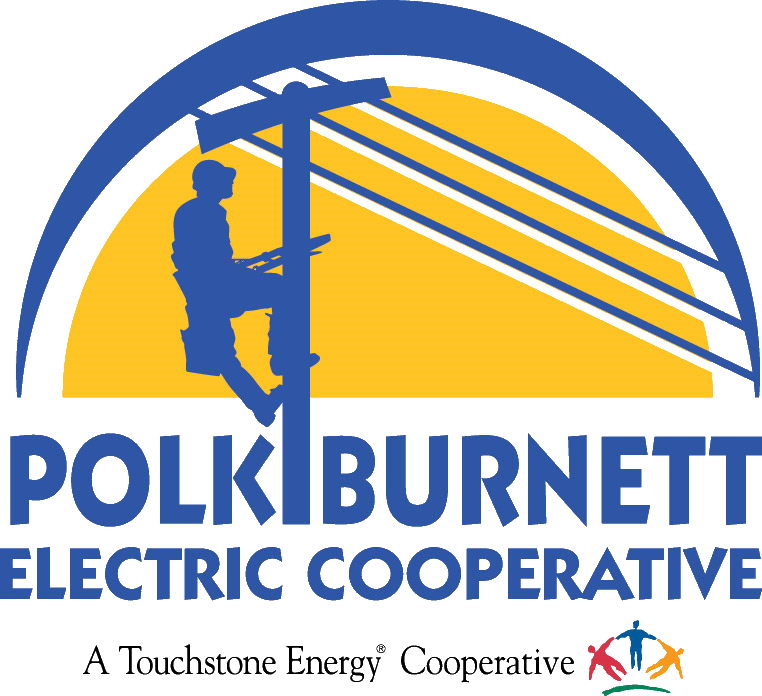 by General Manager Steve Stroshane
by General Manager Steve Stroshane
You've likely seen electric vehicles in the news lately. As your local provider of electricity, we are also talking about EVs. We know EVs are not for everyone, and we don't expect transportation to change overnight, but as we forecast energy use and strategically plan for the future, we have a responsibility to consider how EV charging will impact the electric system and service to our members. We are moving forward and adapting with caution and care, always considerate of our core values, equity, fairness and respect for all of our members. In everything we do and say, we exist to serve you and provide you with safe, reliable power at an affordable cost.
I'd like to thank you for your questions, concerns, positive and negative feedback about EVs. We value your opinions. Below are some of your questions and the reasons why we are talking about EVs and support their adoption:
Why do electric utilities want EVs?
First and most important for Polk-Burnett Electric Cooperative is that we want what our members want. We know we have members who want to plug in EVs, just like we know we have members who want to plug in electric water heaters. Electricity is becoming the fuel of choice for many appliances and equipment that historically were powered by fossil fuels. EVs are part of a shift to beneficial electrification, which satisfies at least one of the following conditions without negatively affecting the others:
1. Saves members money over time (lower fuel and maintenance costs);
2. Benefits the environment and reduces greenhouse gas emissions;
3. Improves members' quality of life;
4. Fosters a more robust and resilient grid (charging overnight, storing power for when you need it).
If the power grid is already stressed, why add more pressure by plugging in EVs?
In the past year two years, regional grid operators have raised concerns about not having enough energy for forecasted needs. EVs can actually help balance the grid by charging at home overnight, when energy demand and cost are low. Here's an example: An EV starts charging at 9 p.m. on a Polk-Burnett Level 2 smart charger installed in your garage. It will have a full charge by morning, and when drivers leave home with a full charge, there are very few times when you will need to charge outside of that overnight, off-peak window. When regional energy demand rises, residential EV chargers can be controlled as part of the co-op's load management program, just like electric water heaters on our system. The co-op offers a charger rebate and off-peak rate in exchange for controlling the charger.
How do EV owners contribute to the gas tax for the roads we all use?
The federal gas tax is $0.184 and the Wisconsin gas tax is $0.309, making the total gas tax $0.493 per gallon of gas. Instead of gas tax, EV owners currently pay an additional $100 for an annual license sticker in Wisconsin. Hybrid owners pay an additional $75.
Who pays for public EV charging?
Many Level 2 public chargers are free for EV drivers. You'll find Level 2 chargers at shopping centers, restaurants and hotels. One hour of charging adds about 20 to 25 miles to the car battery and uses 75 to 90 cents of electricity. The energy is billed to the owner of the charger. A Level 3 fast charger adds 150 to 400 miles per hour, and they are never free.
Why did Polk-Burnett install a public fast charger, and who pays for charging?
Polk-Burnett offers a Level 3 fast charger for public use at Marketplace Foods on Hwy. 8 in St. Croix Falls. The charging station provides about 150 miles of battery range for every hour the vehicle is plugged in. It operates with a credit card or ZEF Energy app for $0.25/kWh. The charger was installed with a rebate from Dairyland Power Cooperative to help alleviate range anxiety in rural areas served by co-ops. To be clear, EV owners pay for fast charging, not Polk-Burnett members.
An EV might NOT be right for you if:
1. You tow or haul large loads. Although it will be interesting to see how this changes with new EV trucks.
2. You travel more than 250 miles per day. Traveling with an EV takes some planning, but if you plan your meal and bathroom breaks around charging stops, you can make charging time more efficient.
3. You don't have the ability to charge at home overnight. Charging at home is easy and inexpensive. If you don't have the ability to charge at home, EV charging will be more inconvenient, time consuming and expensive.
How long will it take to transition from gas to electric vehicles?
Some say we're moving to EVs too fast, and others say we're not moving fast enough. We hear both sides. We believe the transition will be slower here than in urban areas, but we want to make sure rural areas are not left behind. The choice is yours. If you decide an EV is right for you, we're here to help you charge in a way that's cost effective and protects the grid. If you're not interested in electric transportation, that's okay, too. Either way, we're proud to be your trusted energy partner.
I invite you to read Remarks from an EV driver by John Ukura, co-op board director.
Polk-Burnett Electric Cooperative provides safe, reliable electricity to power your home, your electronics and even your transportation. Please contact us if you have questions about EVs and EV charging, 800-421-0283, ext. 595.

